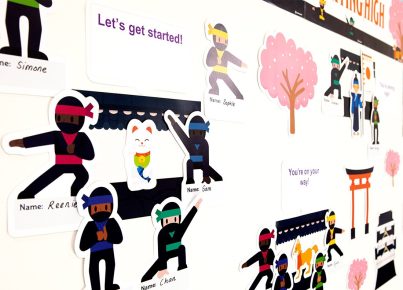Introduction
Teaching can be a demanding and time-consuming profession, with planning lessons often being an important yet laborious aspect. Many educators put great effort into designing engaging, creative and well-thought-out lesson plans, which can make sharing them with colleagues a daunting proposition. In this article, we’ll explore the reasons behind the reluctance to share lesson plans, the benefits of doing so, and ways to overcome this common issue.
Why We Hate Sharing Our Lesson Plans
1. Fear of criticism: Educators may fear that their lesson plans will not be well-received or that their hard work will be criticized by their peers. This can cause anxiety and create hesitation in sharing their ideas.
2. Sense of ownership: Teachers often invest significant amounts of personal time and effort into creating unique lesson plans tailored to their students’ needs. Sharing them can sometimes feel like giving away a part of themselves or surrendering their intellectual property.
3. Competitive environment: Some schools foster a competitive atmosphere rather than a collaborative one. Teachers may feel that sharing their lesson plans would give other educators an unfair advantage or lessen their own value as professionals.
The Benefits of Sharing Lesson Plans
1. Improved teaching quality: When teachers share lesson plans, they expose themselves to new ideas, strategies, and approaches, thereby improving the overall quality of teaching within a school.
2. Time-saving: Sharing lesson plans means other teachers can build upon your work rather than having to start from scratch every time they plan a new unit or activity. This leads to better use of time for all educators involved.
3. Collaboration benefits everyone: By working together and sharing resources, teachers become a supportive community that encourages learning and growth among fellow educators.
4. Student success: Sharing best practices helps ensure that students receive the most effective education possible, leading to increased success both academically and personally.
Tips for Overcoming the Reluctance to Share Lesson Plans
1. Be open-minded: Understand the benefits of sharing lesson plans and be receptive to new ideas or constructive feedback from colleagues.
2. Start small: Consider sharing a single lesson or activity with a trusted colleague to ease your way into the process.
3. Use shared platforms: Utilize online platforms such as Google Drive, Dropbox, or specialized teacher-sharing websites to create a more comfortable environment for sharing resources.
4. Maintain a sense of ownership: Establish boundaries for how your lesson plans can be used by others, such as requiring attribution or requesting that they not be directly copied and presented as someone else’s work.
5. Cultivate collaboration: Foster open lines of communication with colleagues and promote the value of teamwork and collaboration within your teaching community.
Conclusion
Sharing lesson plans can be an intimidating experience, but understanding the reasons behind this reluctance and exploring strategies for overcoming your fears can make it a transformative process for both you and your fellow educators. By sharing and collaborating, we can all contribute to more engaging and effective educational experiences for our students.





